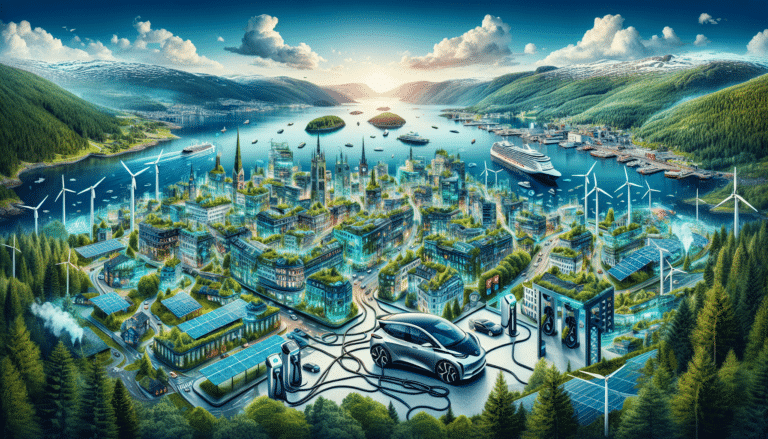Is it time to rethink the hydrogen engine? Evaporation issues and imminent challenges
In the field of sustainable mobility, the hydrogen engine has been seen as a revolutionary promise that could redefine the future of transportation. However, as research progresses, significant challenges and issues emerge, such as hydrogen evaporation in the tanks. This issue, along with other complications inherent to the technology, invites us to question whether it is time to reconsider the approach to this green innovation and evaluate how sustainable and effective it can ultimately be in the long term.
The hydrogen engine, heralded as an innovative alternative for sustainable mobility, faces significant challenges that could hinder its future. From the evaporation of liquid hydrogen in the tanks to nitrogen oxide emissions, the technical and environmental problems invite critical reflection on its long-term viability.
The initial rise of the hydrogen engine
The automotive industry has witnessed impressive innovations in recent years, including the arrival of the first photovoltaic car and the hydrogen engine. The latter was presented as the future of sustainable mobility with the ability to drastically reduce CO2 emissions, a highly valued benefit in times of climate crisis.
Advantages of liquid hydrogen
Among the advantages of hydrogen is its ability to refuel similarly to conventional gasoline vehicles, which simplifies the transition for consumers. Additionally, the reduced refueling time and greater range promise to enhance the driving experience. Toyota has experimented with these features, using ‘hot’ hydrogen in engines like the G16E-GTS that power models like the GR Yaris and the GR Corolla.
Structural issues: Hydrogen evaporation
Despite its advantages, hydrogen engines present significant problems. The density of hydrogen in liquid form does not overcome the challenge of evaporation due to ambient heat. Such evaporation results in the loss of gas which, by escaping into the atmosphere, not only wastes a valuable resource but also potentially contributes to global warming.
Persistent environmental impact: Nitrogen oxides
Beyond evaporation, the efficiency difference between burning hydrogen and fossil fuels is considerable. Even more concerning is that these engines emit nitrogen oxides (NOx), compounds that are hazardous to human health. This underestimated environmental issue requires urgent attention from the automotive industry to avoid negative impacts on climate and public health.
Toyota’s attempt at a solution
Toyota has been a pioneer in seeking ways to mitigate hydrogen loss through self-pressurization systems that recover evaporated gas, using pressure for its liquefaction. However, while this system aims to improve resource efficiency, it does not address NOx emissions, leaving a gap in the comprehensive solution to the challenges of the hydrogen engine.
Which path to follow?
The critical question facing the industry is whether continuing to promote hydrogen engine development is the best strategy, considering persistent technical and environmental barriers. Some argue that electric vehicles, with environmentally friendly technologies like the innovative 400 HP water engine, could represent strong competition in leading the way towards a more sustainable future.
Vision for the future
Regardless of the direction hydrogen research takes, it is imperative that society and industry maintain innovation within a framework of sustainability and ethics. Examples such as efforts to reduce costs in hydrogen production and the development of more sustainable vehicles for the year 2025 illustrate viable options for eco-friendly transportation. It is crucial to approach these innovations with a critical eye, prioritizing the health of the planet and its inhabitants on the path towards the future.
Reflection on the future of the hydrogen engine
The hydrogen engine has been seen as an important advance in the search for sustainable alternatives for the automotive industry. However, upon deeper analysis of the technology, several challenges arise that cannot be ignored.
One of the most significant issues is the evaporation of hydrogen in its liquid state. When exposed to natural heat, hydrogen turns into gas, escaping into the atmosphere and reducing fuel efficiency. Although some advancements aim to capture this evaporated gas through self-pressurization systems, these solutions do not address the entirety of the problem.
Another key disadvantage is the emission of nitrogen oxides (NOx) during hydrogen combustion. Although the reduction of CO2 has been promoted as a benefit, NOx remains harmful to human health and the environment.
The lack of infrastructure for hydrogen refueling adds to the challenge of energy efficiency. The hydrogen engine is often unfavorably compared to the electric engine in terms of efficiency and sustainability. While hydrogen promises emission-free mobility, its practical application requires significant investment in infrastructure and technology.
At this stage, it is crucial for the automotive industry to reassess the use of hydrogen engines, considering both their advantages and their inherent problems. Fostering an open dialogue about these difficulties could lead to the development of more effective and sustainable solutions.
The hydrogen technology still holds great potential, but its success will depend on the ability of innovators to overcome these obstacles. Addressing these challenges will be decisive for hydrogen to position itself as a viable alternative in future mobility.





